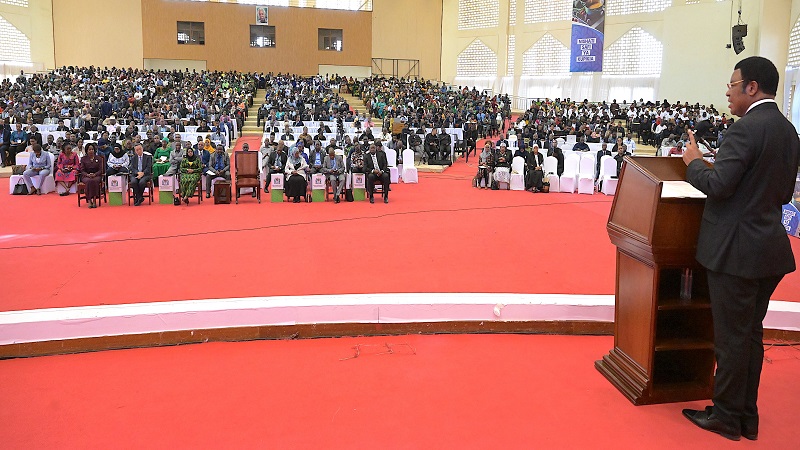Books are vital for cultivating a reading culture in learners, easing teacher’s work

PARENTS play a crucial role in their children's education by providing them with all the needed learning materials including books as well as encouraging them to read. Books serve as silent teachers, offering constructive criticism and fostering a love for knowledge amongst learners.
As the famous philosopher Socrates suggested, the more one learns, the more one realizes how much they still don't know. This sentiment is particularly relevant for those who might assume that wealth alone is the key to success. While money has its value, it is the pursuit of knowledge that truly enriches lives. Knowledgeable persons are better positioned to manage and grow their wealth, demonstrating that knowledge ultimately leads to prosperity.
For many years, it has been said that the best inheritance one can receive is education. Building on this idea, some thinkers emphasize the importance of transforming education into practical knowledge. They argue that knowledge, much of which is found in books, is essential for success. An educated person who neglects reading risks becoming less influential, as it is knowledge, not just education that empowers individuals.
Education typically follows a structured path, with certifications validating one's learning. However, knowledge is less formal and is judged by what an individual knows and understands.
For example, a primary school student who can grasp concepts from a secondary school book demonstrates knowledge beyond their years. Today’s society encourages the pursuit of knowledge, and scholars argue that without converting education into knowledge, the value of education diminishes.
To foster social and economic advancement, the society must promote a culture of reading. New ideas and concepts emerge daily, and as some scholars point out, an educated person who does not read today is at risk of becoming irrelevant tomorrow.
To ensure that children develop a habit of reading, parents are urged to provide them with books. Reading not only benefits individuals but also enriches society as a whole.
Books are vital for several reasons:
Building a reading culture: Reading is a cornerstone of civilization and personal growth. Knowledge gained through reading can transform lives, leading to better experiences and societal development. A commitment to reading drives progress and enables individuals to contribute meaningfully to their communities.
Expanding vocabularies: Understanding the meaning of words within a sentence or paragraph is crucial for comprehension. Regular reading helps individuals build their vocabulary, which in turn enhances their learning. Without a strong vocabulary, understanding complex ideas becomes challenging. Books provide the foundation for this vocabulary development, allowing readers to grasp new concepts more effectively.
Books play a crucial role in making a teacher’s work more manageable. When students have their own books, teachers are relieved from the burden of writing exercises on the blackboard. This frees up time for teachers to focus on preparing other lessons. A well-prepared teacher is more effective in the classroom, as the quality of teaching is closely linked to the knowledge the teacher possesses. To maintain and expand their knowledge, reading is essential for teachers, and having more time to do so improves their teaching.
Books benefit learners, especially when they lose their exercise books. It’s not uncommon for students to misplace their exercise books, which can be particularly stressful during exam preparation. In such cases, having access to textbooks allows students to continue their studies and review the material without disruption.
In the pursuit of knowledge, a book is as essential as a weapon in warfare. Authors invest considerable time and effort in organizing their thoughts and research into a book. Writing is a specialized skill that not everyone possesses or is willing to develop.
Writers write to share knowledge and ideas with others, with the primary goal of reaching an audience. While generating income may be a secondary consideration, the true purpose of writing is to contribute to the development of knowledge.
Supporting writers is essential for the continued growth of knowledge, which in turn empowers society. Encouraging a reading habit among young people is crucial so that it becomes ingrained in learners as part of their culture. Therefore, teaching should instil in learners a deep appreciation for books and the value they bring to education and personal development.
Top Headlines
© 2024 IPPMEDIA.COM. ALL RIGHTS RESERVED

























